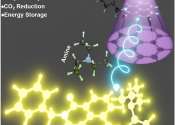Sensing ultraviolet light with the help of molecular switches
The old saying "the dose makes the poison" also holds true for ultraviolet (UV) light. While UV light is essential for vitamin D production, it is also important in phototherapy, several industrial processes, and plant growth. ...









